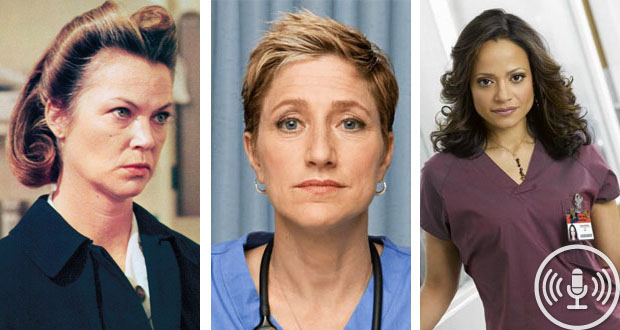"Nobody knows you're here. And you better hope nothing happens to me. Because if I die... you die," nurse Annie Wilkes told the injured writer Paul Sheldon in Stephen King's Misery.
Paul crashed his car in a blizzard and she found him hurt, she was his number one fan. She turns out to be an ex-nurse and psychotic killer who holds Paul hostage. Annie ends up dead in a brawl with Paul, via a statue to the head.
This is one of the many wild representations of nurses on screen that often range from the endlessly giving angel to the malevolent, evil baddie such as Wilkes or the famous Nurse Ratched from One Flew Over the Cuckoo's Nest.
They can encompass the ridiculous, such as the nervous and clumsy Gaylord Focker in Meet the Parents, the troubled but more realistic Nurse Jackie or the all-knowing, sassy Carla from Scrubs. But these ideals can have an effect on real life nurses.
Professor in creative industries at CQU, Donna Lee Brien, and Professor of nursing at CQU, Margaret McAllister, have studied popular culture's limited view of nurses and found that it can take its toll.
"To portray nurses as endlessly caring is verging on saying that it's an inherent trait that a person has within them, and that therefore makes them a good nurse, but in fact it will likely make them a very vulnerable nurse, who will be traumatised and burnt out," McAllister told Nursing Review.
"The thing is that people are constantly disappointed that nurses don't have the time to stay with someone in their pain or tearfulness, and that hurts two sets of people. It hurts the patient, and it also hurts nurses," McAllister said.
Brien thinks that newly graduated nurses are particularly susceptible to the unrealistic stereotypes of nurses presented by the media.
"I don't think it's helping our new nurses that are coming into education and then going out into nursing to also expect that of themselves, because they're going to get hurt and frustrated," she said.
McAllister and Brien see ideas of sexism as partly to blame for these perceptions. But nurses in media can also provide commentary on class, knowledge and power between doctors and nurses as well as the economics of healthcare.
"It's a class thing, and it's a power struggle between medical knowledge and nursing knowledge," said McAllister.
"Like Nurse Jackie, for example, and Getting On, are stories that are critical of economic rationalism, and health policies, and the austerity measures that have made the NHS, for example, in England, to be running on skeleton staff. It's a comment on economics and politics as much as it is on workers within a system," she said.
Nursing Review spoke to Brien and McAllister to unfold this issue.
Email [email protected]
 Nursing Review The latest in heathcare news for nurses
Nursing Review The latest in heathcare news for nurses

